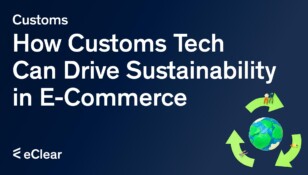Thresholds for import duties to be lowered
Starting 1 July 2021, new customs regulations will be applied throughout the EU, particularly in cross-border e-commerce. One of these regulations concerns the so-called import duties – a collective term for all duties incurred when goods are imported into the respective customs territory. These include customs duties, agricultural levies, import turnover tax, and excise duties (energy, tobacco products, alcohol, and coffee taxes). These import duties are regulated in the Union Customs Code (UCC).
The previous regulation (Section 23 (1) of the Customs Ordinance) provides for the following value limits for the levying of import duties:
- No levy on the import of consignments whose value in kind does not exceed 150 euros, and the duties amount to less than 1 euro,
- regarding travel, less than 3 euros,
- Otherwise, less than 5 euros.
Currently, goods are therefore still tax-free when imported into Germany,
- if they have an actual value of up to €26.30 (full tax rate 19 %)
- or up to €71.35 (reduced tax rate, 7%).
From 1 July 2021, however, these thresholds will change dramatically. Subsequently, goods imported into Germany will only be tax-free
- up to an actual value of goods of €5.25 (full tax rate, 19 %)
- or €14.25 (reduced tax rate, 7 %).
This means that for all goods with a higher value than the threshold values mentioned, either the sellers’ margins will be reduced by the import duties to be paid, or the goods will become pricier for the consumers by the import duties to be paid. Consumers must decide whether to accept the higher import duties (e.g., if they buy goods in China) or prefer to buy from intra-European traders. The legislators intend this effect, as the new customs regulation is meant to end non-European traders’ preferential treatment and create fair competition between domestic and foreign mail-order traders.
Sellers must make costs transparent.
For sellers, one of the consequences of the new regulations is that they have to calculate and show the total costs for consumers during the purchase process, even if they deliver their goods “delivery duty paid”. However, many are not in a position to do this. They, therefore, risk annoying and losing customers because of non-transparent costs. eClear offers individual concepts and suitable solutions here. All costs incurred by the consumer (customs, import VAT, fees, etc.) are calculated and shown during the purchasing process. The customs declaration for the import also takes place automatically, without effort and risk for the seller or consumer. All this is possible when importing goods to Germany or the 27 EU countries and CH, the UK, NO, IS and TK. Please get in touch with Andreas Weidner, Vice President Customs, if you require further assistance with customs clearance and trade compliance.







